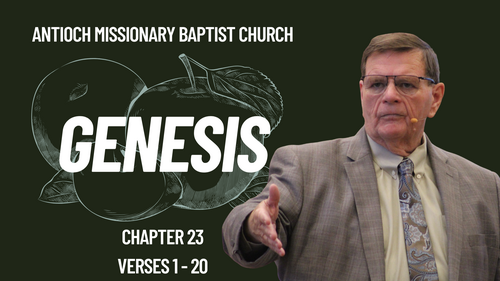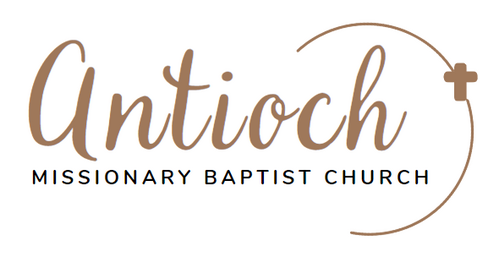Sermon Takeaway 11/23/2025

Living as Strangers in a Familiar World: Lessons from Abraham's Faith Journey

The story of Sarah's death and burial in Genesis 23 might seem like an unusual place to find profound spiritual truth. After all, it's essentially an account of a real estate transaction in ancient Canaan. Yet within this narrative lies a powerful message about faith, integrity, and what it means to live as citizens of heaven while dwelling on earth.
The Reality of Our Temporary Residence
When Abraham stood before the people of Heth, he made a statement that should resonate with every believer: "I am a foreigner and a visitor among you." These weren't merely words of political positioning or cultural observation. Abraham was declaring a spiritual reality that defined his entire existence.
This wasn't Abraham's permanent home, and he knew it. Despite living in Canaan for decades, despite God's promise that this land would belong to his descendants, Abraham didn't own a single grain of sand. Yet he refused to return to his homeland of Haran. He wouldn't bury Sarah anywhere but in the Promised Land because his faith had grown to the point where he understood something profound: he was looking for a city whose builder and maker was God.
The question we must ask ourselves is equally profound: Are we foreigners and strangers to this world, or have we become too comfortable here?
This wasn't Abraham's permanent home, and he knew it. Despite living in Canaan for decades, despite God's promise that this land would belong to his descendants, Abraham didn't own a single grain of sand. Yet he refused to return to his homeland of Haran. He wouldn't bury Sarah anywhere but in the Promised Land because his faith had grown to the point where he understood something profound: he was looking for a city whose builder and maker was God.
The question we must ask ourselves is equally profound: Are we foreigners and strangers to this world, or have we become too comfortable here?
The Danger of Deep Roots
There's nothing inherently wrong with enjoying life on earth. God created beauty, relationships, joy, and meaningful work for us to experience. The problem arises when our roots grow so deep into this temporary soil that we lose our yearning for our true home.
When we love this world and its offerings more than we love our eternal destiny with Christ, we've created an idol. When our citizenship feels more terrestrial than celestial, we've forgotten our true identity. The challenge isn't to develop a morbid death wish or to disengage from life, but rather to hold everything with an open hand, recognizing that this world is passing away.
Consider this perspective: project your life one hundred years into the future. For most of us, that places us firmly in eternity. Now imagine standing before God and giving Him the same excuses you offer today for not serving Him faithfully. How will those explanations sound in heaven?
"I didn't have time for church."
"I couldn't afford to give."
"I was too tired to serve."
The angels who constantly worship before God's throne won't find these excuses compelling. Neither will we when we stand in His presence.
When we love this world and its offerings more than we love our eternal destiny with Christ, we've created an idol. When our citizenship feels more terrestrial than celestial, we've forgotten our true identity. The challenge isn't to develop a morbid death wish or to disengage from life, but rather to hold everything with an open hand, recognizing that this world is passing away.
Consider this perspective: project your life one hundred years into the future. For most of us, that places us firmly in eternity. Now imagine standing before God and giving Him the same excuses you offer today for not serving Him faithfully. How will those explanations sound in heaven?
"I didn't have time for church."
"I couldn't afford to give."
"I was too tired to serve."
The angels who constantly worship before God's throne won't find these excuses compelling. Neither will we when we stand in His presence.
Faith Through Failure
Abraham's journey wasn't one of unbroken success. He had lied about Sarah being his sister—twice. He had taken matters into his own hands with Hagar. He had moments of doubt and fear. His faith journey included valleys as well as mountaintops.
Yet when Sarah died, the people of the land didn't remember Abraham's failures. They saw him as "a mighty prince among us." They offered him the choicest burial places. They respected him deeply enough to conduct business with him in a culture that typically executed foreigners.
What made the difference? Abraham never stopped moving forward in faith. He didn't remain in his failures. He allowed God to work through his weaknesses and grow him into a man whose life testified to the reality of the God he served.
This is encouraging news for all of us who have stumbled. There is no shame in failure—the shame lies in remaining in failure. The testing, the trials, the difficult times, even our mistakes can become the very tools God uses to refine us into vessels He can use powerfully.
Yet when Sarah died, the people of the land didn't remember Abraham's failures. They saw him as "a mighty prince among us." They offered him the choicest burial places. They respected him deeply enough to conduct business with him in a culture that typically executed foreigners.
What made the difference? Abraham never stopped moving forward in faith. He didn't remain in his failures. He allowed God to work through his weaknesses and grow him into a man whose life testified to the reality of the God he served.
This is encouraging news for all of us who have stumbled. There is no shame in failure—the shame lies in remaining in failure. The testing, the trials, the difficult times, even our mistakes can become the very tools God uses to refine us into vessels He can use powerfully.
The Witness of Integrity
When Abraham insisted on paying full price for the burial cave, he demonstrated something crucial: integrity matters, especially in our dealings with the world. He could have accepted the generous offer to take the land for free. After all, they had offered it. But Abraham understood that his testimony was worth more than any financial savings.
He refused to give the world any reason to say he had taken advantage of them. He wouldn't allow anyone to question his character or, by extension, the character of the God he served. Even in grief, even in the vulnerability of losing his beloved wife, Abraham maintained his integrity.
This principle applies to every area of our lives. The world is watching how we conduct business, how we treat our families, how we respond to crisis, how we handle success and failure. Our greatest sermon isn't preached from a pulpit—it's lived out in the daily moments when our faith is tested and our character revealed.
He refused to give the world any reason to say he had taken advantage of them. He wouldn't allow anyone to question his character or, by extension, the character of the God he served. Even in grief, even in the vulnerability of losing his beloved wife, Abraham maintained his integrity.
This principle applies to every area of our lives. The world is watching how we conduct business, how we treat our families, how we respond to crisis, how we handle success and failure. Our greatest sermon isn't preached from a pulpit—it's lived out in the daily moments when our faith is tested and our character revealed.
Making a Difference by Being Different
The reason the world is in its current state isn't primarily due to political parties or cultural movements. The world is in crisis because the church has become too much like it. Rather than the church changing the world, the world has changed the church.
We've become silent on issues where we should speak truth. We've compromised where we should stand firm. We've pursued comfort where we should embrace the cost of discipleship. The result is a church that looks remarkably similar to the culture around it, with little transformative power.
Being different doesn't mean being weird or unnecessarily offensive. It means living according to God's standards even when they conflict with cultural norms. It means speaking truth in love even when that truth is unpopular. It means our lives should cause people to wonder what makes us different and ultimately point them to Christ.
Yes, people will talk about you regardless. If you live godly, some will call you self-righteous. If you compromise, others will call you a hypocrite. Since they're going to talk either way, you might as well give them something worth talking about—a life that genuinely reflects the transforming power of the gospel.
We've become silent on issues where we should speak truth. We've compromised where we should stand firm. We've pursued comfort where we should embrace the cost of discipleship. The result is a church that looks remarkably similar to the culture around it, with little transformative power.
Being different doesn't mean being weird or unnecessarily offensive. It means living according to God's standards even when they conflict with cultural norms. It means speaking truth in love even when that truth is unpopular. It means our lives should cause people to wonder what makes us different and ultimately point them to Christ.
Yes, people will talk about you regardless. If you live godly, some will call you self-righteous. If you compromise, others will call you a hypocrite. Since they're going to talk either way, you might as well give them something worth talking about—a life that genuinely reflects the transforming power of the gospel.
The Long View of Faithfulness
Abraham's decision to bury Sarah in Canaan was more than a practical matter—it was a declaration of faith. He was saying, "God promised this land to my descendants, and I believe Him. I'm not going back. I'm staying the course."
That burial cave at Machpelah would eventually hold not just Sarah, but Abraham himself, Isaac, Rebecca, Jacob, and Leah. It became a memorial to God's faithfulness across generations.
Our faithfulness today creates a legacy for tomorrow. The decisions we make, the stands we take, the integrity we maintain—all of it builds something that outlasts our earthly lives. We're not just living for ourselves; we're creating a testimony that will speak long after we're gone.
That burial cave at Machpelah would eventually hold not just Sarah, but Abraham himself, Isaac, Rebecca, Jacob, and Leah. It became a memorial to God's faithfulness across generations.
Our faithfulness today creates a legacy for tomorrow. The decisions we make, the stands we take, the integrity we maintain—all of it builds something that outlasts our earthly lives. We're not just living for ourselves; we're creating a testimony that will speak long after we're gone.
The Challenge Before Us
The call is clear: live as foreigners and strangers in this world. Don't put down roots so deep that you can't let go. Allow God to work through your failures and testing to refine you into someone He can use powerfully. Maintain your integrity even when it costs you. Be different from the world so you can make a difference in it.
This isn't easy. It never has been. But it's the calling of every believer. And when your time of testing comes—and it will—may you stand faithful, a light in the darkness, a testimony to the reality of a God who keeps His promises and transforms ordinary, flawed people into mighty princes and princesses of faith.
This isn't easy. It never has been. But it's the calling of every believer. And when your time of testing comes—and it will—may you stand faithful, a light in the darkness, a testimony to the reality of a God who keeps His promises and transforms ordinary, flawed people into mighty princes and princesses of faith.
Your citizenship is in heaven. Live like it matters.
Watch the full sermon here:
Recent Takeaways
Archive
2026
2025
March
September
October
November

No Comments